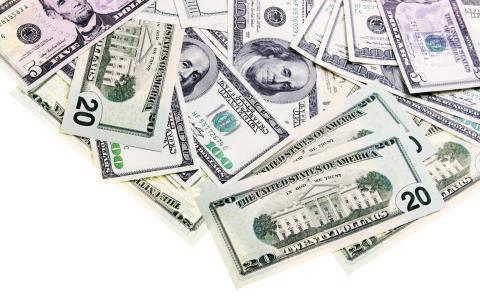
(AOL) - It was always good to be rich, but there has never been a better time to have money to burn than right now.
According to the Institute for Policy Studies, America’s billionaires got 62% richer during the COVID crisis, with the nonprofit Oxfam reporting that the world’s 1% gobbled up two-thirds of the $42 trillion in new wealth created in the ensuing post-pandemic years.
Like her current boss, President Joe Biden — the man whose office she hopes to become the first woman to occupy — Vice President Kamala Harris believes those kinds of statistics reveal a toxic level of wealth disparity and economic inequity. If she wins in November and has the support of a friendly Congress, the ultra-rich and even the regular-rich should expect Harris to put their vast fortunes squarely in her crosshairs.
Meet the Expert
Dennis Shirshikov is a professor of finance, accounting and economics at City University of New York. Not only does he hold a stellar 4.9-out-of-five rating from RateMyProfessor, but he has firsthand experience building and maintaining wealth through changes in parties, administrations and policies. A longtime real estate investor, he serves as the head of growth at the vacation property investment platform GoSummer. He’s a regular contributor to the Wall Street Journal, Time and Forbes, and covers the intersection of governmental policy and wealth accumulation in the academic courses he teaches.
In his estimation, the greatest impact a Harris victory would have on the rich likely would come through adjustments to the IRS tax code.
“A Kamala Harris presidency could bring significant changes to the tax landscape for the wealthy,” he said.
Harris Backs a Targeted ‘Wealth Tax’ on the Richest of the Rich
Presuming a friendly Congress, Harris has signaled that as president, she would adopt President Biden’s long-standing position that the richest Americans don’t pay their fair share in taxes.
“A Kamala Harris presidency is likely to pursue tax policies aimed at increasing the tax burden on the wealthy,” Shirshikov said. “Harris has previously endorsed policies to increase the tax burden on high-income earners, such as raising the top marginal tax rate and implementing a wealth tax.”
The wealth tax Shirshikov references comes from the official Biden-Harris 2025 budget proposal, which reads, “The tax code currently offers special treatment for the types of income that wealthy people enjoy. While the wages and salaries that everyday Americans earn are taxed as ordinary income, billionaires make their money in ways that are taxed at lower rates, and sometimes not taxed at all. This special treatment, combined with sophisticated tax planning and giant loopholes, allows many of the wealthiest Americans to pay lower rates on their full income than many middle-class households pay. To finally address this glaring inequity, the budget includes a 25% minimum tax on the wealthiest 0.01%, those with wealth of more than $100 million.”
Capital Gains — Even Unrealized Gains — Could Be Taxed as Regular Income
Shirshikov cited the vice president’s commitment to “closing loopholes that disproportionately benefit high earners,” echoing the language of the White House budget proposal itself.
Since the rich typically rely more on investment income than salary, the budget would tax capital gains at the same rate as regular income for individuals earning $1 million or more and eliminate the so-called carried interest loophole, which the White House budget proposal says “allows some wealthy investment fund managers to pay tax at lower rates than their secretaries,” and close the “‘like-kind exchange loophole’ that lets real estate investors defer tax indefinitely.”
However, the most striking proposal is what IFC Media, the leading publishing house for the global wealth management industry, calls a “radical departure from normal taxation” — the taxing of unrealized gains for the ultra-rich.
An old investing adage is you don’t lose anything until you sell. Conversely, since unharvested returns are still unrealized gains, they’re not subject to taxation — at least not yet.
Her proposed 25% tax on unrealized gains for centi-millionaires with nine-figure fortunes or more would be a watershed moment for U.S. tax policy.
Even Garden Variety Rich People Should Expect a Higher Income Tax Rate
Harris’s pursuit of a wealth tax on the ultra-rich is a relatively easy sell in a country where millions live paycheck to paycheck.
“This approach aligns with her broader goal of addressing income inequality and ensuring that the wealthiest Americans contribute a fairer share to public revenues,” Shirshikov said.
However, he also expects an increase to the highest marginal tax rate. That’s a much wider net that would ensnare not just a handful of ultra-wealthy centi-millionaires and billionaires, but vast swaths of comparatively ordinary high earners, many of whom might not even consider themselves rich.
The Biden-Harris 2025 budget proposal would repeal the provision of Donald Trump’s 2017 Tax Cuts and Jobs Act that lowered tax rates for high earners to 37%, “restoring the top tax rate of 39.6% for single filers making more than $400,000 a year and married couples making more than $450,000 per year,” according to the administration’s official budget proposal.
Compared to billionaires, a person earning $400,000 might seem like small potatoes. However, according to the Tax Foundation, that income level puts you in the top 2% — and the Biden-Harris administration thinks the 98th percentile is a reasonable floor for targeted taxes on the rich, so America’s aristocracy would be wise to start huddling with their financial advisors now in preparation.
Shirshikov said, “These measures are intended to address income inequality and generate revenue for social programs, potentially impacting investment strategies and financial planning for the affluent.”
By Andrew Lisa
Aug 11, 2024



